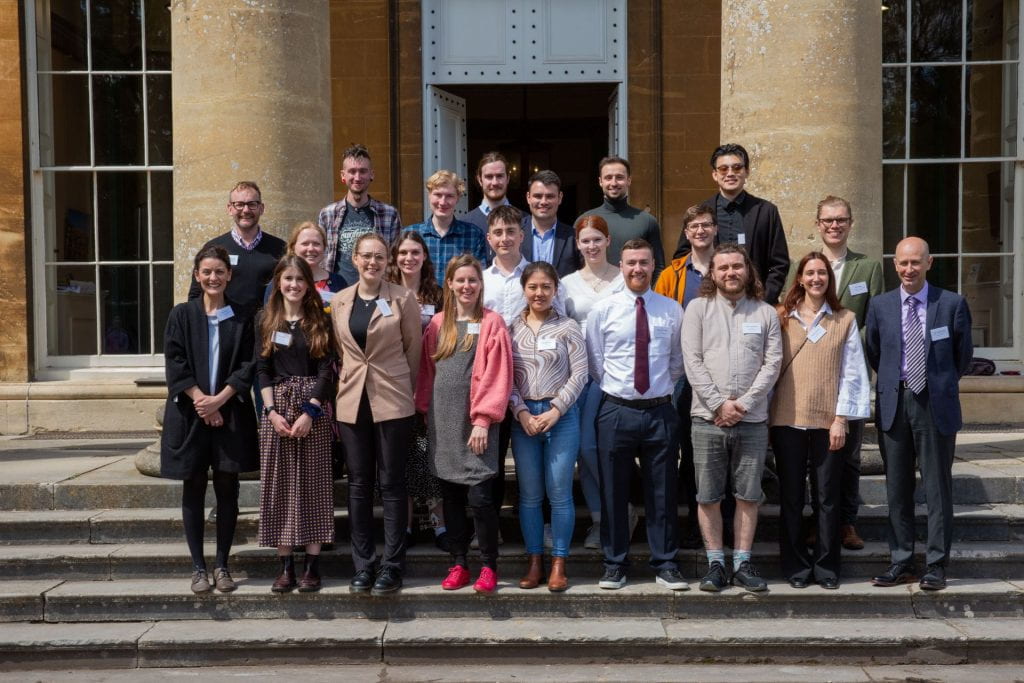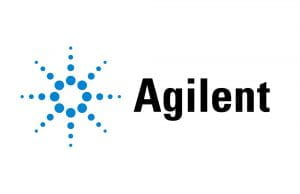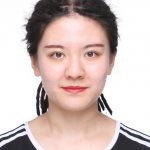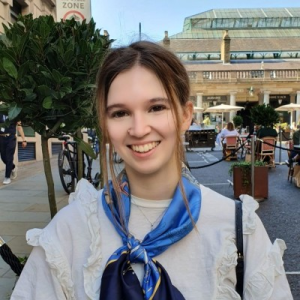2020-21 Cohort
Our second cohort of 18 students started their PhD studies in September 2020. Find out more about their interests and research projects below.

Robert Lewis - University of Hertfordshire

Project: Respirable Fibre Detection from Light Scattering Patterns
Supervisors: Dr Richard Greenaway, Dr Chris Stopford
Rob developed an interest in physics during his apprenticeship in engineering and after almost 10 years working in that industry, he needed a change. After an access to science and nursing course at the College of West Anglia he completed his bachelor’s degree in physics at the University of Hertfordshire. The combination of his new fascination with lasers and some of the health risks of his previous job lead him to a PhD opportunity at Hertfordshire’s Particle Instrumentation and Diagnostics department.
His PhD will be to determine a relationship between laser light scattered from high aspect ratio (fibrous) aerosol and the morphological properties of the aerosol itself. Hopefully this will lead to greater detection and categorisation methods of potentially hazardous aerosolised fibres.
Frederick Bertani - University of Cambridge

Project: Improving the Evaporative Light Scattering Detector Through Experiments and Modelling
Supervisors: Prof. Simone Hochgreb
Frederick Bertani is a PhD student investigating Agilent’s Evaporative Light Scattering Detector. His project involves improving the ELSD with experiments and modelling in order to more thoroughly understand the physics underlying the device, allowing for optimisation. As part of the Aerosol Science CDT Fred spent time at the University of Bristol using Optical Tweezers to measure evaporation of single trapped droplets. He holds an MSci from Durham University where he studied chemistry & mathematics, there he completed his Master’s project in the synthesis of 2D materials beyond graphene as candidates for photocatalytic artificial photosynthesis.

Joanna Egan - University of Leeds

Project: Optical Properties of Venusian Clouds
Supervisors: Prof. John Plane, Prof. Dan Marsh, Prof. Ben Murray
Before joining the CDT, Jo completed a Masters in Physics from the University of Oxford, specialising in Atmospheric, Oceanic, and Planetary Physics and Particle Physics. Her research will involve looking into the composition of Venus’s upper cloud layer to try to explain its optical properties. In particular, she’ll be trying to identify the species responsible for the absorption in the blue to ultraviolet region of the spectrum which gives Venus its characteristic yellow colour and has remained unexplained for over 90 years.
Fergus Lidstone-Lane - University of Manchester

Project: Particle Transport and Losses when Sampling Aircraft Engine Combustion Emissions
Supervisors: Dr. Paul Williams, Dr. Amanda Lea-Langton, Dr. Adam Boies, and Dr. Mark Johnson
Fergus graduated from Cardiff University with a MEng (International with a year in Industry) in Mechanical Engineering. As part of his degree he undertook an industrial placement year at Airbus and a semester abroad at the University of Miami. After completing a final year project with Airbus, he decided to pursue industry lead doctoral research.
He is working with the University of Manchester and Rolls Royce to improve the understanding of transport and losses when sampling aircraft combustion emissions, with a particular focus on sampling close to the combustion chamber. The aim of the research is to help develop more efficient aircraft combustion engine design.

Robert Alexander - University of Bristol

Project: Replication and modelling of infectious respiratory droplets in humans and animals
Supervisors: Dr. Darryl Hill
What does a microbiologist have to do with aerosols? Robert’s project looks at how bacteria and viruses ‘survive’ the aerosolisation process when we breathe, talk, and cough. Hopefully helping to improve upon current models for disease transmission. After earning an undergraduate degree in Pathology and Microbiology from the University of Bristol, Robert continued at the School of Cellular Molecular Medicine in Bristol going on to complete a MRes developing genetically engineered nanoparticles.
Robert says “The boundaries between scientific disciplines is where the really exciting stuff happens. I am fascinated by using a variety of equipment during experimentation, characterisation and modeling. The Aerosol CDT stood out as an opportunity to further develop these skills in an interdisciplinary setting”. Outside of academia Robert enjoys cycling, drumming and chatting about his research down the pub.
Edward Neal - University of Bristol

Project: High Confidence Modelling of Particle Resuspension
Supervisors: Prof. Jonathan Reid, Prof. Darragh Murnane, Prof. Wuge Briscoe
Edward was first introduced to Aerosol Science when researching the lightning-induced fragmentation of pollen for his Master’s degree at the University of Manchester. The project was a great practical application of his Physics background but also offered the opportunity to engage with multiple scientific disciplines. This led him to join the CDT and he is currently based at the University of Bristol researching the various factors that affect particle resuspension, such as particle morphology, surface roughness and relative humidity, with the aim of improving models for predicting resuspension.

Joshua Hassim - University of Cambridge

Project: Development and Integration of Ultrafine Particle Charging Sensors
Supervisors: Prof. Simone Hochgreb
Josh graduated from the University of Cambridge with a MEng in Aerospace and Aerothermal Engineering. Josh was introduced to aerosol science during his Master’s project, where he undertook a project investigating the use of low-cost aerosol sensors in roadside monitoring. This led him to join the CDT to pursue more detailed research into aerosol sensors. His PhD project has taken him back to the University of Cambridge where he is focusing on the development and integration of low-cost charging sensors for ultrafine particle monitoring.
George Downing - Imperial College London

Project: Smart Filtration of Aerosols in Ventilation Systems
Supervisors: Prof. Yannis Hardalupas
George did his integrated masters in Chemical Engineering at the University of Cambridge. His PhD focuses on trying to manipulate and understand the flow and preferential concentration of particles within turbulent airflow. This can be used to develop more efficient filtration systems by concentrating particles and promoting agglomeration or coalesce resulting in larger particles sizes which are easier to filter out.
Caterina Fantuzzi - University of Hertfordshire
Jianghan Tian - University of Bristol

Project: Inhalation Dynamics of Aerosol and Airborne Disease Transmission
Supervisors: Prof Jonathan Reid
Olivia Jackson - University of Manchester

Project: Towards a Better Understanding of Pesticides in the Atmosphere
Supervisors: Prof Hugh Coe, Dr David Topping

Jack Macklin - University of Bath

Project: Crystallisation in nano-droplets
Supervisors: Dr Adam Squires, Prof. Jonathan Reid
Stanislaw Koper - University of Hertfordshire

Project: Collection methods for early detection of airborne viruses
Supervisors: Dr Daniel McCluskey, Dr Ian Johnston and Dr Loic Coudron
Stanisław has a BSc Biological Science, MSc Infection & Immunity and is now undertaking a PhD in Aerosol Science. Stas is a steadfast individual capable of conjuring willpower to stride through challenges of research and proactive in the inspiration of others. Disciplined and dedicated to maintaining mental and physical health.
His research focuses on the detection of viral aerosol pathogens for bioterrorism and pandemic monitoring purposes. Furthermore, building a standardised approach in all aspects of the research. He has identified key factors from start to finish in the detection process that require more investigation. His Biological background gives him a different perspective that will enhance multidisciplinary collaboration in the engineering department.
Ellie Vokes - University of Bath

Project: Aerosol Jet Printed p- and n-type Semiconductor Materials: Practical Routes to Printed Electronics
Supervisors: Dr Andrew Johnson
Ellie completed an undergraduate degree in Chemistry at the University of Bath (2016-2020). During her master’s year she undertook a project under the supervision of Dr Andrew Johnson looking at precursors for aerosol-assisted chemical vapour deposition. Ellie now re-joins the group as part of the CDT.
Her research focuses on the fabrication of thin films using aerosol jet printing, specifically for applications in electronics. The project will involve the synthesis of semiconducting precursor materials that can be used to add functionality to inks, and subsequently be deposited using aerosol jet printing.
Lance Jiang - University of Bristol

Project: Dynamics of Aerosolized excipients on Inhalation at above 95% Relative Humidity
Supervisors: Prof. Jonathan Reid, Prof. Darragh Murnane

Cyprien Jourdain - University of Cambridge

Project: In-flight measurement of nanoparticle surface area and volume
Supervisors: Prof. Adam Boies, Prof. Simone Hochgreb
Cyprien graduated from the National Institute of Applied Sciences (Toulouse, France) in 2017 where he obtained a Master’s degree in Mechanical Engineering. He developed a passion for applied research during an internship at the University of Melbourne, Australia where he contributed to developing an optical engine to study alternative combustion strategies. Back from Australia, he had the opportunity to undertake a double degree in Aerospace Engineering (MASc) in Montreal, Canada. His research there focused on experimental fuel spray characterisation and related computer vision techniques. After nearly two years in Canada, and a short period in France to work on supersonic combustion, he started a PhD degree at the University of Cambridge where he is currently working in the Boies Research Group.
Altin Kocinaj - University of Hertfordshire

Project: In-vitro modelling of the lung’s response to environmental nanoparticulates
Supervisors: Prof. Darragh Murnane, Dr Laura Urbano
Altin completed his undergraduate degree in Pharmacology at the University of Southampton, where he developed a great appreciation for the research done and that he was a part of. He then proceeded to bolster his research skills and after his masters, worked for 2-years as a research assistant in Parkinson’s research.
Altin is now a PhD student investigation In-vitro modelling of the lung’s response to environmental nanoparticulates. This will involve developing a standalone in vitro model that bridges the gap between traditional in vitro toxicology and in vivo toxicology, with the desire of reducing the need of animal models for nanoparticle toxicology and drug development.
Georgia Gamble - Imperial College London

Supervisors: Dr Marc Stettler and Prof. Terry Tetley
During her undergraduate degree at the University of Southampton, Georgia developed a love for the investigative process that is research. After undertaking two research assistantships in both Japan and Sweden, she decided that working in the realm of Atmospheric Aerosol research would be the perfect fit.
Now Georgia’s project seeks to understand the health impacts caused by aircraft emissions through the use of a surrogate soot source and ambient air sampling.

EPSRC CDT in Aerosol Science
University of Bristol
School of Chemistry
Cantock's Close
Bristol, BS8 1TS
aerosol-science@bristol.ac.uk
Partner Newsletter
Sign up to receive monthly news and updates from the CDT in Aerosol Science, as well as events, training and research webinars.

